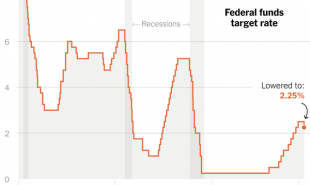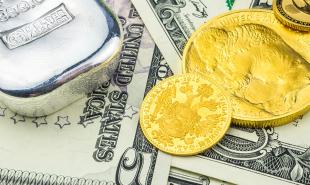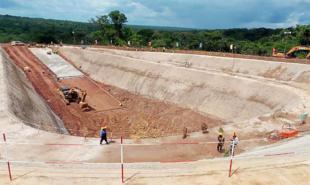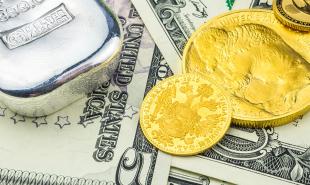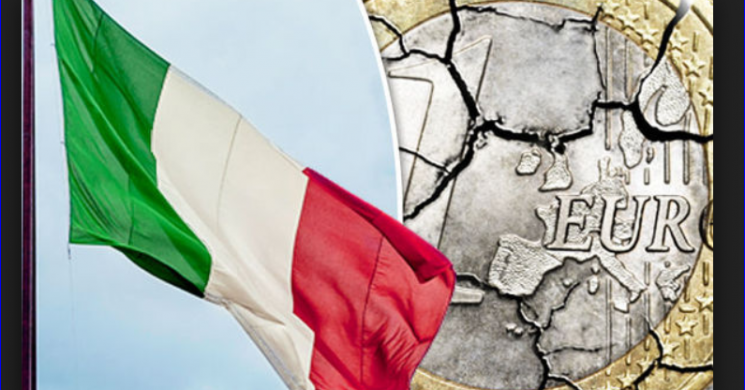
Italy: Harbinger of Gold's Next Bull Market
authored by Gerardo Del Real
The Euro is a doomed currency and the resulting capital flight into the U.S. will be a major catalyst for a stronger dollar and continued all-time highs in the major U.S. indices and new sustainable highs in the gold and silver price.
The fallout from a blowup in the European financial sector is something I’ve been writing about since I launched Junior Mining Monthly.
While the writing has been on the wall for years, it’s now entering a stage where real bets are being made... big ones by people much smarter than me.
[Soren K Edit- The connection to Gold is in that Dalio is also bullish Gold. The author links financial failure with Gold buying. This may well be true, however that is when in our opinion the final backstop of all FIAT fails. This may not be permitted to happen in our lifetime. From Dalio's recent letter to investors and several interviews; Here he is on Gold.
He sees 3 main factors continuing to support gold. All of which are exemplified in the Italian situation as he sees it as well.
- “Gold is primarily an alternative to fiat currency and a storehold [sic] of wealth,” Dalio writes in a letter to investors obtained by Business Insider. “The main advantage that gold has over other currencies is that it can’t be printed.”
- Developed economies will continue to rely on monetary stimulus for years, he says. And central bank easing, of course, raises the threat of soaring inflation
- Near record-low interest rates also argue for higher gold prices, Dalio says. The fact that gold doesn’t pay any interest is generally seen as one of the metal’s main drawbacks as an investment, he points out. But, “real interest rates are likely to remain very low and below real growth rates, as a means of combating deleveraging and improving debt sustainability,” Dalio writes.
Forgive us for connecting the dots here, but Dalio's bets against Italy shown below, especially on the banking side, are directly related to the reasons he is bullish Gold.
Related: part of Dalio's rationale for Gold is continued low real interest rates as we've described before in prior posts
- The Fed and Real Rates: "The Winner Will be Gold"
- Gold's Opportunity Cost: Real Interest Rates Since 1311 - Harvard Paper
Also keep in mind, Italy has significant Gold reserves and any fresh bailout may actually necessitate them selling or forfeiting some of it to be bailed out. That for us would be the dealbreaker and a sign for an exit from the EU. But we doubt politicians, even non globalist types, think in terms of centuries when their next election is around the corner.
Bloomberg recently reported that the world’s largest hedge fund, Bridgewater Associates, is adding to its billion-dollar short against the Italian economy. The fund recently disclosed a $300 million bet against Eni SpA, Italy’s oil and gas giant.
This is in addition to the more than $1.1 billion short against six Italian financial institutions.
The largest bet is reported to be against Intesa Sanpaolo.
Although Intesa CEO Carlo Messina defended his bank and warned Bridgwater Founder and Chairman Ray Dalio that his bet would not pay off, even he had to admit that the lack of coordination by the various European entities overseeing the banking sector was concerning.
Messina recently told CNBC:
”I'm really disappointed by the fact that you have the ECB (European Central Bank) saying something, parliament saying something different, commissions, Eurogroup, IMF... So a lot of players that are dealing with something that is absolutely price sensitive."
What else is Dalio shorting? How about Enel SpA, the country’s largest utility, whose majority holder is the Italian government.
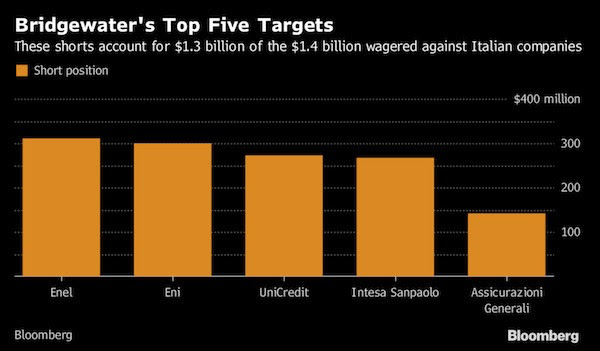
A $1.1 billion bet against the banks, followed by a $310 million bet against the country’s main utility on top of a $300 million bet against the country’s oil & gas giant is the equivalent of Dalio shorting the EU because, if he’s right, the consequences will be felt throughout Europe.
Blowups rarely happen in isolation.
Italy's NPL (nonperforming loans) levels stood at €356 billion at the end of June of last year, corresponding to 18% of total loans for Italian banks, equivalent to 20% of Italy's GDP and one-third of the euro area total for NPLs.
Why is Dalio singling out Italy? Because the €318 billion in bad loans on Italian banks' balance sheets represents a third of Europe’s total.
There’s also recognition by the ECB that the current path is not sustainable. Under a new ECB proposal, banks will have to provision against the entire potential loss on newly-classified nonperforming loans that aren’t backed by collateral after two years.
There wasn’t much announced in the way of details but the immediate response by the index of Italian banks was a 7% drop.
The banking system isn’t the only institution showing signs of imploding.
The recent referendum in Catalonia and the response by Spanish Prime Minister Mariano Rajoy is setting a dangerous precedent that will only intensify the capital flight out of the region.
For the first time in Spain’s history the government has moved to strip the autonomy of one of its 17 regions. Rajoy has invoked — also for the first time — article 155 of the Spanish Constitution — an article intended to protect the “general interests” of the nation.
What the general interests are is becoming increasingly clear; the federalization of Europe.
The EU Commission is comprised of 28 commissioners. The mandate is that each commissioner is suppose to represent the general interest of the EU, not the home state (seeing a trend?).
The Commission is responsible for proposing legislation, implementing it, and upholding EU treaties.
French President Emmanuel Macron recently called for a restructuring of the EU.
He proposes to include a joint force for military operations. How does he plan to pay for it? The old-fashioned way: by taxing the citizenry.
Mr. Macron wants a EU defense force by 2020 that would give the bloc “autonomous capacity for action.”
But Mr. Macron did not stop there. He also proposed an EU tax on big technology companies and international action to regulate online activity.
Why does any of this matter to those of us investing in junior resource companies?
Because the recent actions by Spain against the people of Catalonia and the complicit (silent) EU has added another layer of uncertainty about the sustainability of the EU.
That uncertainty will only lead to further capital flight out of Europe and into the U.S. market, which will lead to continued highs in the major U.S. indices.
The concern about asset bubbles will force interest rates higher. Higher interest rates are not sustainable. Not here and definitely not in Europe.
Exactly when the blowup unfolds is a question that no one can answer, but the trend is clear as day and money out of global bond markets is the major catalyst that will usher in a new bull market in gold.
Read more by Soren K.Group


